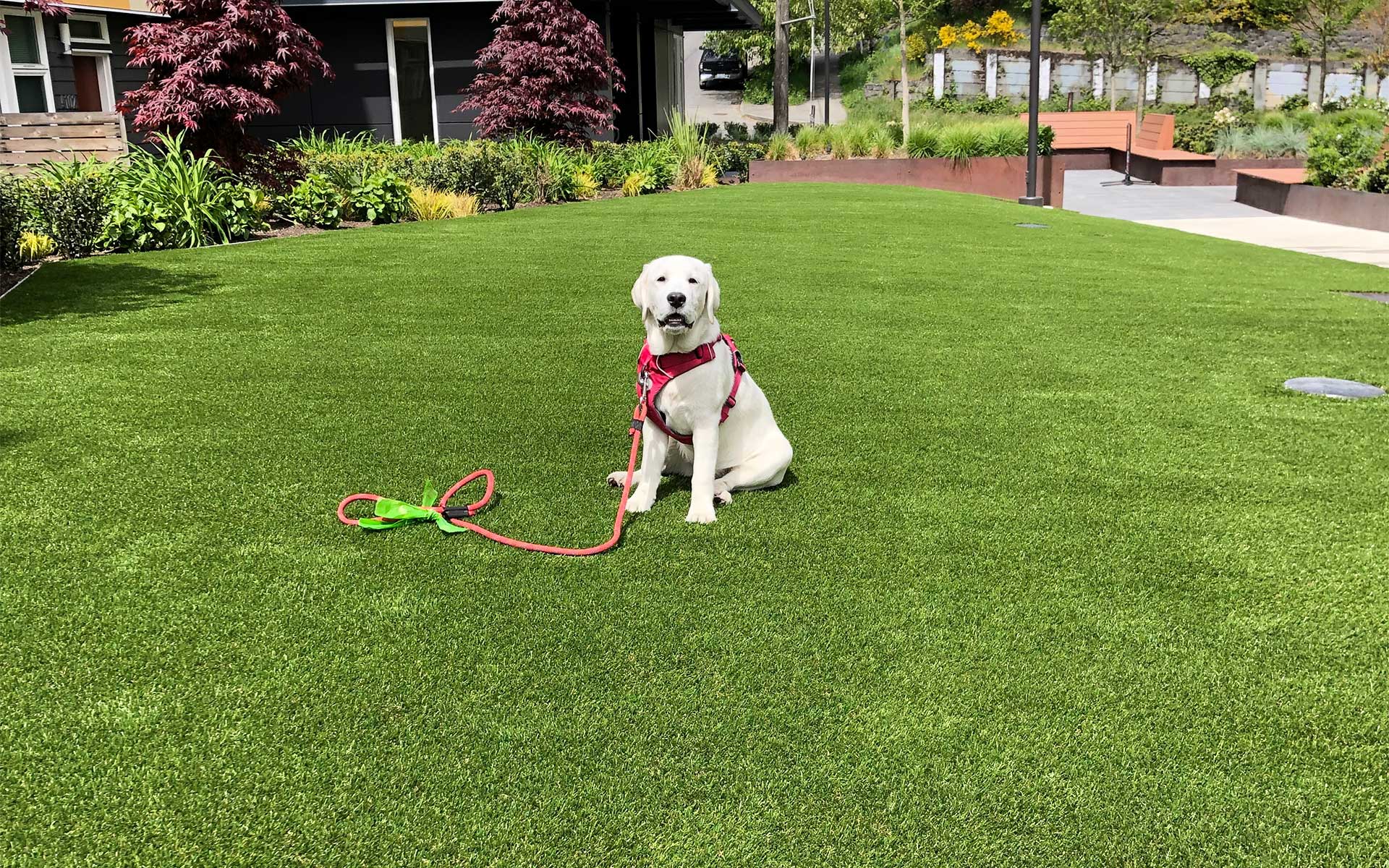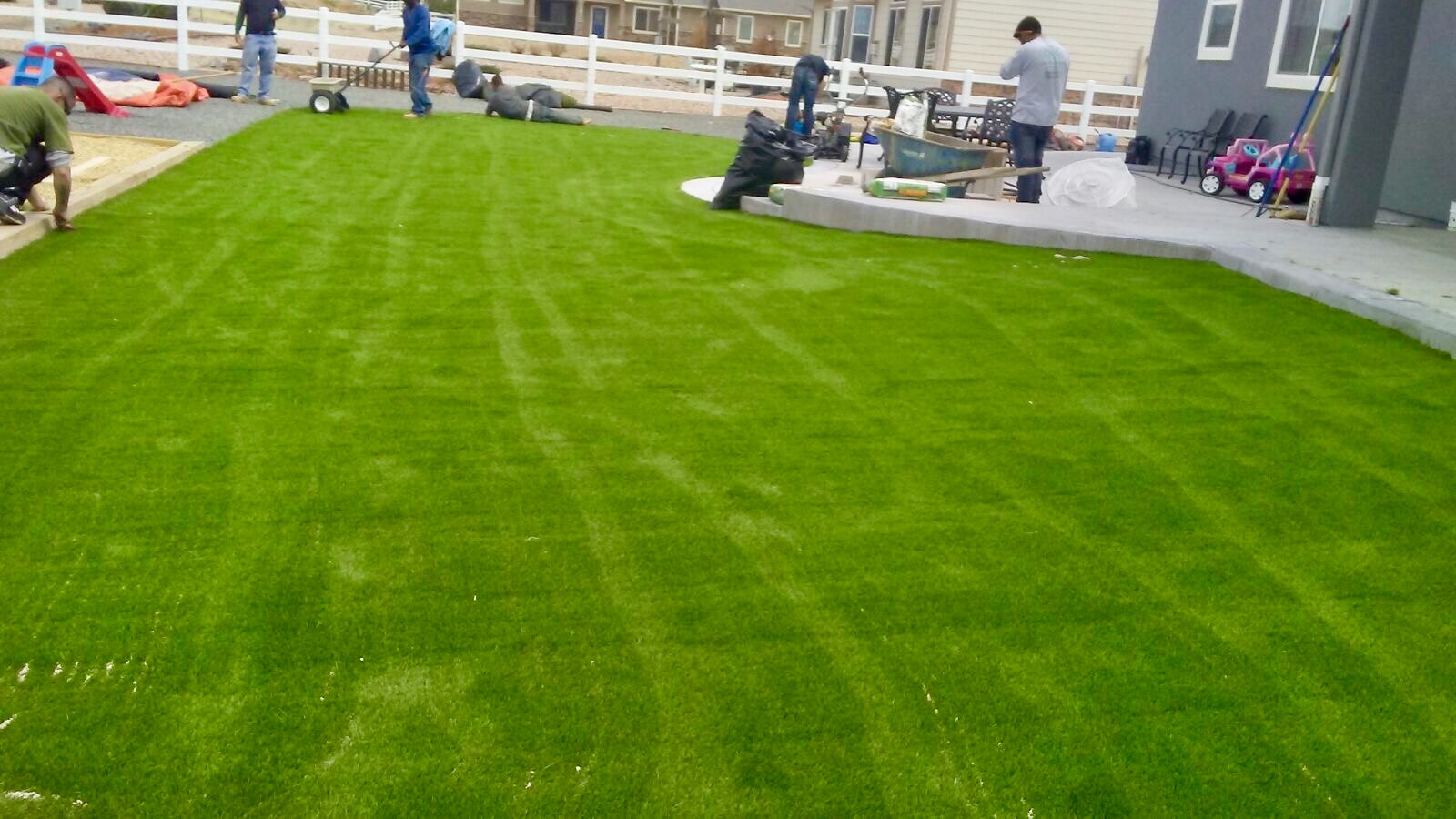Sustainable Arizona Artificial Turf for a Year-Round Lush Green Lawn
Sustainable Arizona Artificial Turf for a Year-Round Lush Green Lawn
Blog Article
Delve Into the Environmental Conveniences of Opting for Synthetic Grass Solutions
The fostering of fabricated turf solutions provides an engaging opportunity to attend to pressing ecological challenges. By significantly decreasing water use and minimizing the application of dangerous chemicals, these alternatives not only advertise sustainable landscape design yet likewise shield neighborhood environments. Moreover, the lower carbon impact related to decreased maintenance tasks adds to an extra lasting strategy to land monitoring. The implications of these advantages expand beyond mere preservation initiatives, elevating inquiries regarding their lasting influence on environment conservation and total environmental equilibrium. Discovering these dimensions exposes a complicated interplay worth thinking about.
Water Preservation Benefits
One of one of the most significant benefits of synthetic grass is its capacity to preserve water. Standard lawn yards call for substantial irrigation, particularly in locations vulnerable to dry spell or water constraints. In contrast, synthetic grass does not require watering, significantly decreasing the overall need for water resources. This attribute is particularly useful in dry regions where water deficiency is a pushing issue.
By removing the requirement for routine watering, synthetic grass adds to lasting landscape methods and helps minimize the ecological effect of too much water intake. The preservation of water prolongs to the decrease of overflow, which can lead to dirt disintegration and waterway pollution.
Additionally, the setup of synthetic grass allows home owners and communities to designate water sources a lot more successfully, concentrating on essential usages such as alcohol consumption water and agriculture. The change towards artificial lawn not just advertises liable water use but additionally lines up with broader environmental goals focused on protecting natural deposits.
As communities increasingly focus on sustainability, the water conservation benefits of artificial grass provide an engaging situation for its fostering in business and property landscaping jobs.
Minimized Chemical Use
The change to synthetic grass significantly decreases the dependence on chemical treatments typically made use of in all-natural lawn maintenance. Standard turf management commonly includes the application of chemicals, herbicides, and fertilizers to advertise development and control parasites. These chemicals can posture dangers to human health, neighborhood wild animals, and the atmosphere, adding to dirt and water contamination.
In comparison, artificial turf removes the requirement for these hazardous materials. By minimizing the launch of synthetic substances into the community, fabricated turf promotes much healthier dirt and water systems.
Additionally, the absence of chemical overflow connected with synthetic grass installations assists safeguard local waterways from air pollution, supporting aquatic life and keeping biodiversity. Phoenix turf companies. As communities increasingly prioritize lasting practices, selecting fabricated grass offers a viable option that straightens with ecological conservation objectives. Through this shift, home proprietors can appreciate rich eco-friendly spaces without compromising ecological health, leading the way for a much more lasting future
Lower Carbon Footprint

Additionally, the setup of synthetic lawn can lead to significant water conservation. Natural yards call for substantial quantities of water for irrigation, which not only adds to the carbon impact related to water extraction and therapy yet additionally stress regional water sources. In comparison, man-made lawn requires minimal upkeep, calling for no watering, consequently substantially lowering water use and its connected energy expenses.
Additionally, the long life of fabricated lawn adds to its lower carbon impact. With a life expectancy of approximately 15 years or more, the requirement for frequent replacements is decreased, leading to less waste and lower energy consumption in manufacturing and dealing with typical lawn alternatives. Overall, synthetic grass provides a lasting choice for ecologically conscious landscape design.
Habitat Conservation
Environment preservation is an important factor to consider in the debate over landscape design options, particularly when comparing synthetic grass to natural grass. All-natural turf yards often need extensive maintenance, including the usage of pesticides, plant foods, and herbicides, which can negatively affect regional ecosystems. These chemicals can leach into the soil and rivers, hurting native flora and fauna and interfering with local environments.
Artificial turf removes the need for damaging chemicals, thus safeguarding nearby wildlife and keeping the honesty of surrounding communities. The installation of man-made turf can lead to the conversion of former turf areas right into even more biodiverse landscapes, such as pollinator gardens or native plant locations, which can sustain neighborhood wild animals.
Inevitably, the shift to synthetic grass not try this just saves water and reduces maintenance initiatives however likewise fosters an extra harmonious partnership in between human tasks and the native environment, promoting environment preservation in the procedure.
Long-Term Sustainability
Lasting sustainability is a crucial consider evaluating the advantages of man-made lawn over standard turf lawns. Among one of the most substantial advantages of synthetic grass is its longevity; it can last approximately 15-20 years with very little maintenance, whereas all-natural turf needs constant reseeding and replacement. This longevity reduces the requirement for consistent resources, such as water, fertilizers, and pesticides, which are essential for keeping a healthy and balanced yard lawn.
Furthermore, man-made lawn contributes to a reduction in carbon exhausts linked with grass care devices. Standard lawns frequently require gas-powered mowers, leaners, and blowers, all of which add to air contamination. Turf installation phoenix az. On the other hand, synthetic grass gets rid of the requirement for such equipment, promoting a cleaner environment
Moreover, the manufacturing of man-made lawn increasingly uses recycled materials, improving its sustainability account. As manufacturers embrace environment-friendly techniques, the environmental impact of artificial turf continues to diminish.

Final Thought
The adoption of synthetic grass services presents substantial ecological benefits, including substantial water preservation, reduced reliance on unsafe chemicals, and a reduced carbon footprint. In addition, artificial lawn aids in preserving all-natural habitats by lessening land home disruption and promoting long-lasting sustainability through the use of long lasting materials. Collectively, these variables emphasize the possibility of synthetic turf to contribute positively to environmental health and wellness and supply a feasible option to conventional landscape design practices in a significantly resource-conscious world.
In comparison, synthetic grass does not need watering, significantly minimizing the total need for water sources. By decreasing the release of artificial substances right into the community, man-made turf promotes much healthier dirt and water systems.
In addition, the installation of synthetic grass can result in significant water conservation. In contrast, man-made lawn needs marginal upkeep, calling for no watering, therefore significantly reducing water usage and its connected additional hints energy expenses.

Report this page